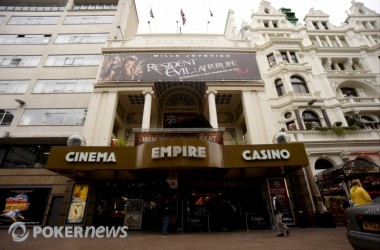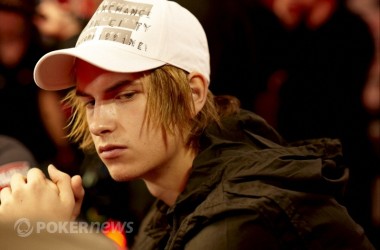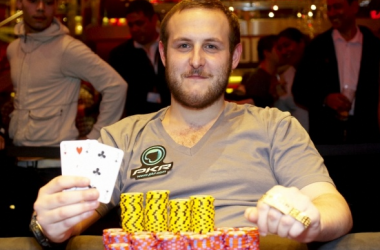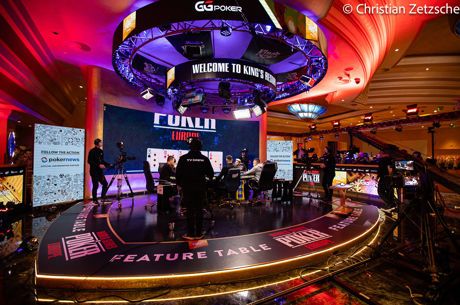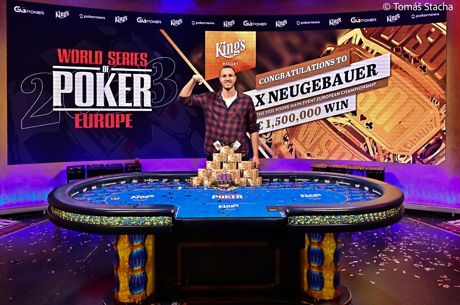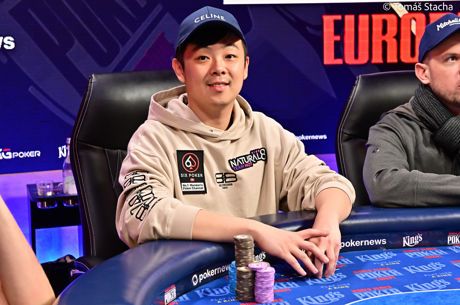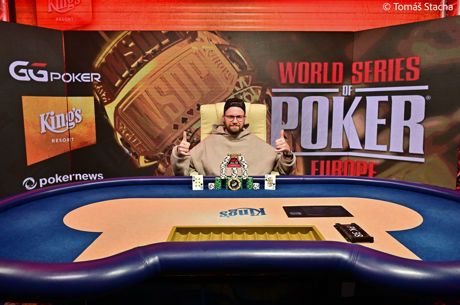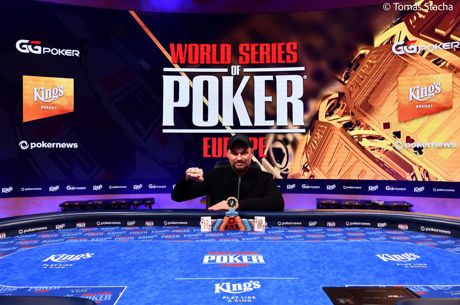A Look Back at the 2010 World Series of Poker Europe
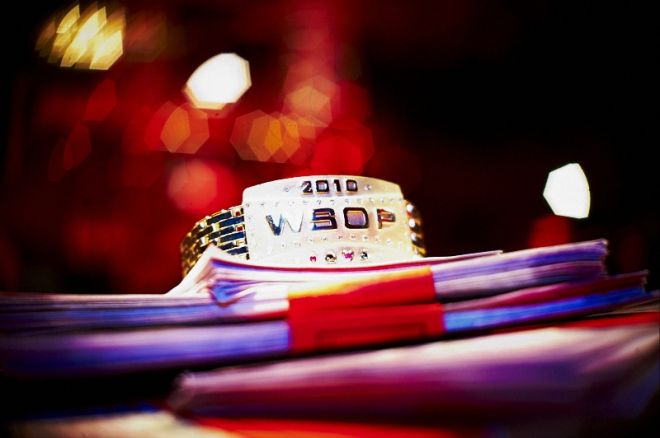
The World Series of Poker Europe is back, it's got a new home, and it's bigger than ever.
The fifth annual WSOPE kicked off on Friday from it's new pomp digs in Cannes, France. That alone is enough reason to get excited as the tour moves to one of the most interesting and scenic locations on the planet, the French Riviera. If you're not convinced yet, and you don't mind being teased, have a look at Lynn Gilmartin's Jet Set guide to Cannes and browse through some photos of the city online. If playing poker in front of a Mediterranean sunset doesn't sound like a good time to you, you're in the wrong place. Or at least, you would be in Cannes.
Seven gold bracelets are up for grabs this time around, along with a Ladies' Event and the return of the popular Caesars Cup. In fact, looking at the schedule has us all excited again. The first thing that jumps out is the addition of a couple of new events: a shootout, and a unique split-format event. Here, have a look for yourself.
All this buzz about the WSOPE got us wandering down memory lane and back through what was an incredibly exciting couple of weeks in London last year. The 2010 Series was filled with memorable moments and solid sweats, and action began with a vengeance in the first of five events.
A solid 244 players opened up the fourth annual WSOPE with the ��2,650 Six-Handed event. Setting a fine tone for the following two weeks, Britain's finest poker players and a smattering of international all-stars filled the tough field. Three days later, spectators were rewarded with a fantastic final table.
Local favorites Chris Moorman (12th place), Praz Bansi (11th), and John Tabatabai (7th) just missed out on seats at that final table, but the U.K. still had a rooting interest in three places with Andrew Pantling (adopted from Canada), Chris Bjorin, and Willie "The Dice" Tann among the final six.
But the Brits seemed to adopt another member of that final table, as well, American Phil Laak. Still relatively decrepit from a serious ATV accident, Laak spent three days using a wooden spoon and a wad of gray putty to rehab and scratch at the plaster cast holding his right arm together. The cast bearing a large Union Jack, mind you. That was much to the crowd's delight, and Laak's antics at the table won them over in a big way. When the WSOPE's all-time leading casher, Bjorin, was eliminated in third place, Laak was clearly the rooting favorite over Britain's own Pantling. It took a mighty heads-up battle to get it done, but at the end of the day, Laak was left alone at the table taking a TwitPic of himself clutching his first gold bracelet.
When's the last time you've seen a winner's photo like this?
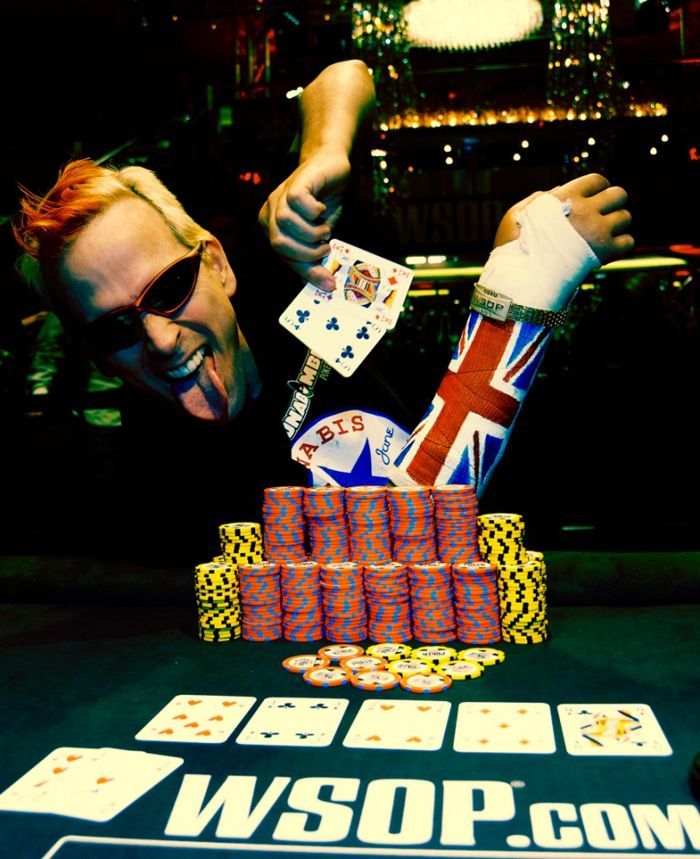
But seriously, Laak. One bracelet? Jeff Lisandro has one for every limb plus another for the trophy case. Australia's most gangster-looking pro, Lisandro snagged bracelet number five in the Series' second event, the ��5,250 Pot-Limit Omaha event. There were several "wow" moments down the stretch in that event, including another deep run for Bjorin. He fell in ninth this time, while "The Dice" made his second consecutive final table, too. Tann managed to stave off elimination until the final three at a table, which also included Felipe Ramos, John Racener (looking to win a bracelet in his November Nine interim), Jeff Madsen, and Joe Serock.
Serock eventually made it to heads-up play, and the match truly could have gone either way �� unlike some of Lisandro's other bracelets. But Serock had a fighting chance until the two men played a monster pot with aces against kings. It was Lisandro on the bad end with the under-pair initially, but a king on the flop turned the tides for good. A couple of hands later, it was over.
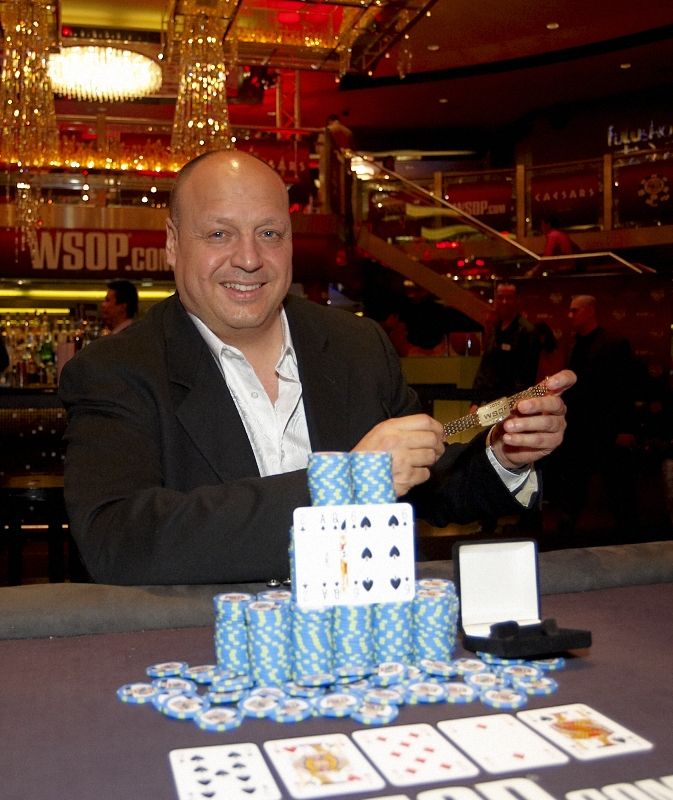
There was another quartet of Brits at that ten-handed Event #2 final table, but they were once again held without a bracelet. Until Event #3, that is. This time, six Brits made the final table from the starting field of 582 in the ��1,075 No-Limit Hold'em European Stimulus Special, if you will. As the field played down, all eyes were on Team PokerStars Pro JP Kelly as he charged his way through a potentially history-making endeavor. He had won the event the year before and was looking to become the first to defend a WSOP hold'em title since Hellmuth in the 1990s. A win would also have made Kelly the first player to win two WSOPE bracelets, and, at just 24 years old, it would have made him the youngest player to win three bracelets �� breaking Phil Ivey's record, no less. And Kelly made it all the way to a heads-up encounter, one knockout away from the record books.
The shadow across the table from Kelly was the unfamiliar face of Scott Shelley, a fellow Londoner. After bubbling the same event one year prior, Shelley �� who worked for an online poker site �� won his 2010 entry (and a shot at redemption) in a staff freeroll. Three days later, he found himself sitting face-to-face with the defending champion, trying to play the role of spoiler against the overwhelming crowd favorite. It was another long duel, and in the end, the underdog, Shelley, raised the bracelet to put the icing on a very successful debut cash.
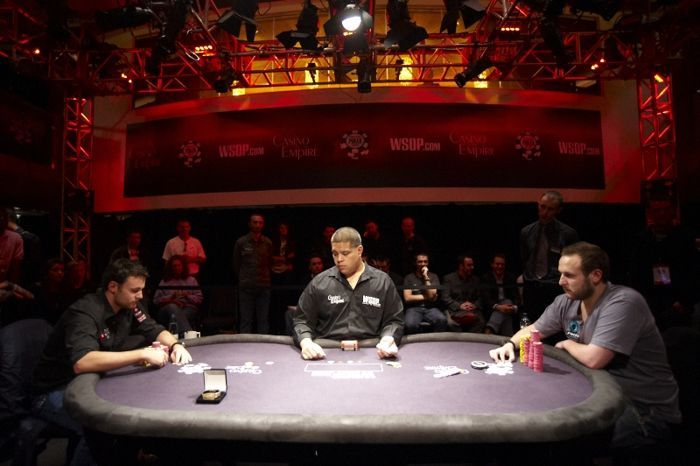
The fourth event of the Series was the ��10,350 High Roller Heads-Up, a fantastic addition to the schedule. An expectation-shattering crowd of 103 players showed up to battle, and the assembled field was elite, to say the least. Unless they were lucky enough to get a first-round bye, a player had to win three matches to earn a payday and spot in the Round of 16. One could be forgiven for skipping the "pat yourself on the back" step at that point when they looked up at the board and saw the other players still remaining in their way, including Andrew Feldman, Neil Channing, Daniel Negreanu, Kevin Eyster, Huck Seed, McLean Karr, Andrew Robl, and, oh yeah, Phil Ivey. Find an easy path to the final through that bunch. Two other notable players did survive that gauntlet, though, Gus Hansen and Jim "Mr_BigQueso" Collopy, who were eventually set to meet for the bracelet.
The last round was in the best-of-three format, and the long semifinal matches earlier in the afternoon meant a late start for the final. Employing a remarkably passive style, Hansen took the first match with relative ease. Collopy stole the second, but it was too late to play on. The pair were sent home for the night around 3:00 a.m., slated to return at 6:00 p.m. the following day to conclude the match. Exams for Collopy and other events for Hansen complicated the matter, and it would be another three days before they found an agreeable time to play it out. It was a fortuitous turn of events in the end, as the ESPN crews had arrived just in time to film the spectacle for TV.
Collopy jumped out to an early lead in that rubber match, but a sick cooler robbed him of his momentum and most of his stack. "Queso" had flopped trip jacks with queen-jack, and it was Hansen who bet the raggy turn with his under-pair of pocket twos. The poker gods gifted him another deuce (and deuces full of jacks) on the river, and Collopy could not keep from getting all-in and granting his opponent the double up. The battle continued on for a long while after that, but the result seemed inevitable. The Great Dane was too much on that night.
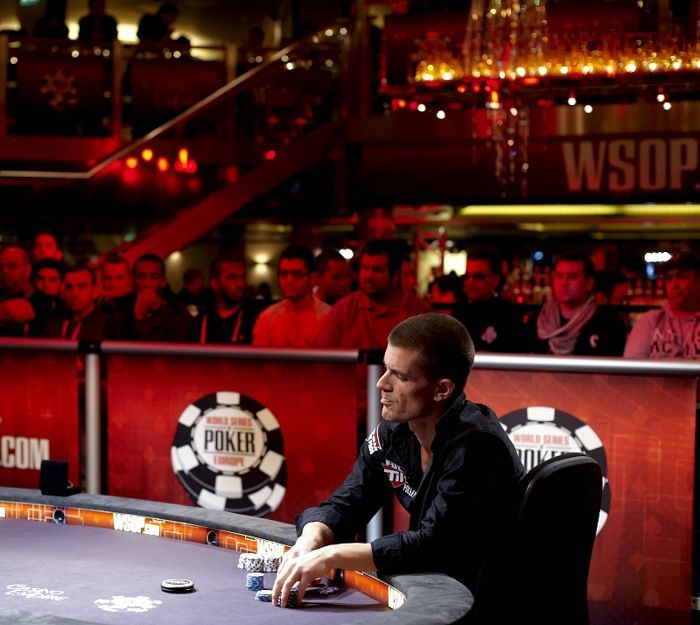
The Main Event was the closing fifth event of the WSOPE, and it drew an on-par field of 346 runners. Surely, it was the most fantastic WSOPE Main Event yet. It had to be. Down the stretches and into the money with 36 left, there was some incredible poker being played all over the room. Americans Matthew Waxman, Bryn Kenney, Barry Greenstein, and Hoyt Corkins were looking to bring the title back to the U.S.A., while the Brits were still barreling with the likes of Darren Woods, James Mitchell, John Eames, Barny Boatman, Roland de Wolfe, and once again, their adopted son, Pantling.
But the big story of the tournament was actually two big stories woven together, and things began to take shape as early as Day 2. When the clock ran out on play, live rookie Viktor "Isildur1" Blom made the headlines as the chip leader, and Phil Ivey's sixth-place stack sparked some early wishful thinking, too.
A Main Event title for Ivey, perhaps?
Blom and Ivey were still in the top six after Day 3, and watching the two of them maneuver through the field was a priceless lesson for those wise enough to look on. The fourth day began with 20 players left standing in their way, and the rest of the class was stacked. De Wolfe and Boatman were still kicking for Great Britain, and France had Arnaud Mattern, Thomas Bichon, and Nicolas Levi left in the running. There were also a few lesser-known but dangerous players like Ronald Lee, Brian Powell, and David Peters. With all due respect to them, however, nobody was watching any of them. All eyes were on Ivey and Blom and the promise of what could be a truly momentous conclusion.
Unfortunately, though, the bottom fell out rather quickly on Day 4. Ronald Lee snapped off Ivey in 19th place, using a squeezy-looking three-bet to lure Ivey into a shove with ace-ten. Lee peeked again to make sure he actually had the ace-king before he made the call, and another king on the turn ended Ivey's hopes of snagging bracelet number nine. In the meantime, Blom had been dropping pot after pot to find himself in short-stacked territory, and he lost a flip with pocket eights to Brian Powell's king-queen to exit in 16th place.
Considering what could have been, the following day's final table was shaping up to be a bit of a letdown at first glance, but the spectators were once again presented with a fantastic spectacle of poker. If ever there was a case of a crowd carrying a player to victory, it happened with James Bord on that final day in London as the rest of poker world was introduced to the nearly indescribable phenomenon now commonly referred to as the "Brit Rail."
Bord began the final table in the middle of the pack, and he was quietly overlooked in much of the speculation and hype leading in. The crowd that came out to support him was anything but quiet. A blind man would have had a tough time telling whether he was at a poker tournament or a football match that day, and the chandeliers hanging from the ceiling in the Empire Casino rattled vigorously in response to the deafening crowd. Spurred on by his cheerleaders, Bord soon found himself heads-up with Italy's Fabrizio Baldassari, though he faced a big chip disadvantage.
Bordy and his crew were not to be silenced, however, and about 250 hands into the day, it was all over. James Bord was the 2010 WSOPE Main Event Champion �� and suddenly had ��830,401 and another bracelet for the U.K.
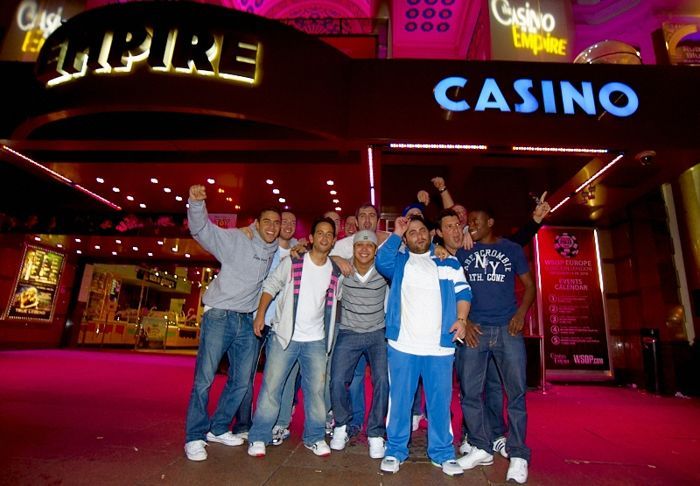
The new and improved WSOPE is off and running once again, and you've come to the right place for up-to-the-minute coverage. Head over to the Live Reporting page to check on the action, and follow us on Twitter to keep tabs on the rest of the news in between hands.

